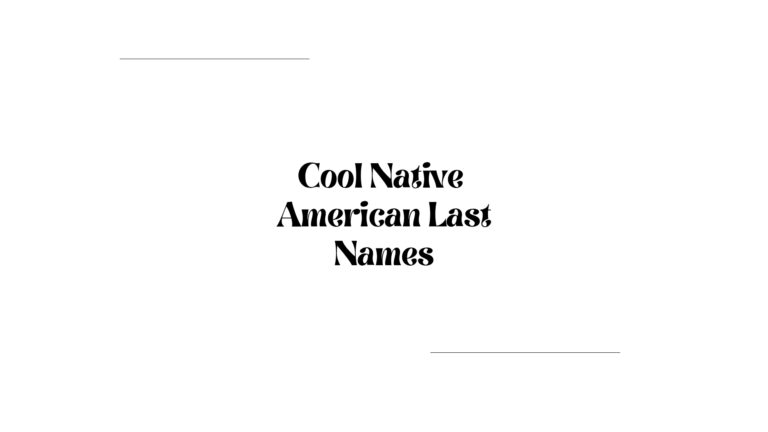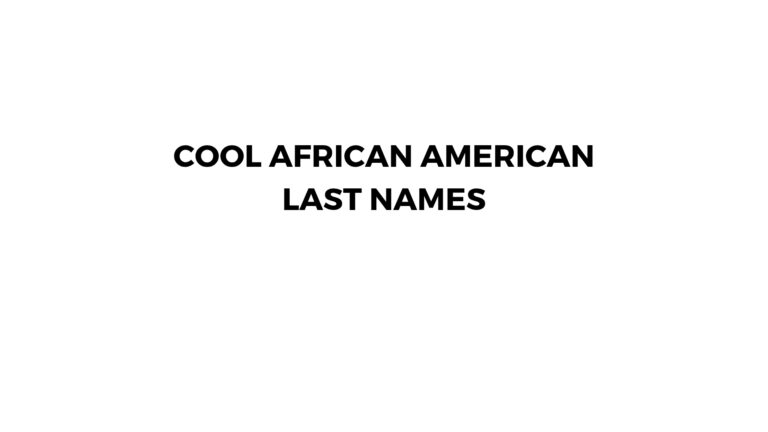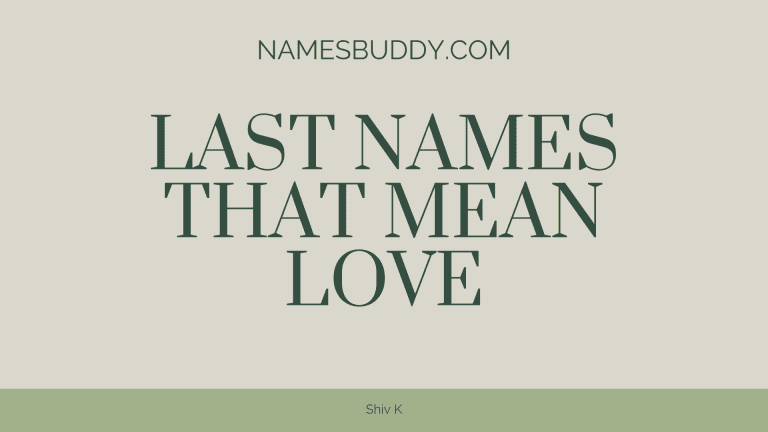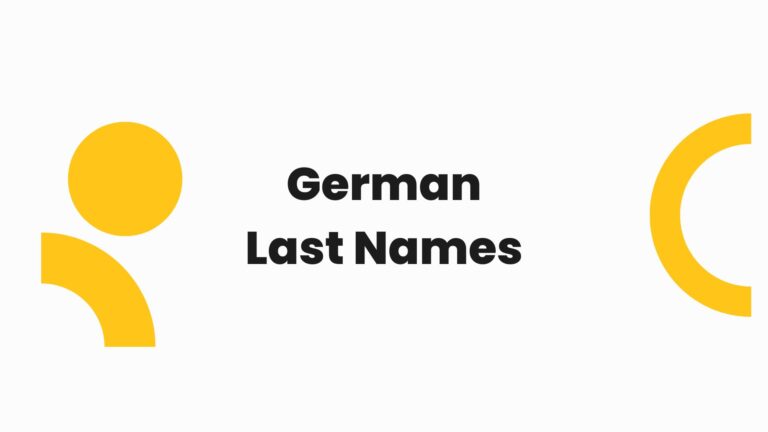100 Cool British Last Names
British surnames are enthronement of history with influences cultivated through centuries, occupations, and geographical origin.
Noble surnames linked to medieval aristocracy and simple names birthed through trades and regions; these names tell beautiful stories about bloodlines and societal evolution.
The guide provides insight into their meanings, history, and ongoing significance, whether in the course of assembling a family tree or mere curiosity about the more common British surnames.
British Last Names
Smith – Blacksmith or metalworker
Taylor – Tailor, someone who made or altered clothing
Clark – Clerk, scholar, or scribe
Cooper – Barrel maker
Miller – Someone who operated a grain mill
Baker – A bread maker
Fletcher – Maker of arrows
Thatcher – Someone who thatched roofs
Carter – A cart driver
Shepherd – A sheep herder
Hill – Someone who lived near a hill
Wood – Someone who lived near or worked in a forest
Brooks – From a place near a brook or stream
Green – Someone who lived near a village green
Marsh – Someone who lived near a marshland
Bailey – From “bailiff,” an officer of the law or keeper of a fortress
Knight – A knight or servant in a noble household
Chambers – Someone who worked in a lord’s private rooms
Palmer – A pilgrim who had been to the Holy Land
Webster – Weaver of cloth
Harrison – Son of Harry
Davidson – Son of David
Evans – Son of Evan (Welsh form of John)
Robinson – Son of Robin (a form of Robert)
Wilkinson – Son of Wilkin (a form of William)
Hudson – Son of Hugh
Bennett – From the medieval name “Benedict,” meaning “blessed”
Spencer – Steward of a household
Barrett – “Strong as a bear” (from Old German)
Sinclair – From the French “Saint-Clair,” a place name
Stanley – From “stone” and “leigh” (a rocky clearing)
Whitaker – “White acre,” a place with white fields
Hawkins – Derived from “Hawkin,” a diminutive of Henry or from “hawker” (bird trainer)
Gilbert – From the Old German name “Gislebert,” meaning “bright pledge”
Russell – From Old French meaning “red-haired”
Fox – A nickname for someone cunning or fox-like
Lamb – A nickname for a gentle person or a shepherd
Peacock – A nickname for someone proud or flamboyant
Little – A nickname for a small person
Armstrong – A strong-armed person, likely a warrior
Hardy – From the Old French “hardi,” meaning “bold” or “courageous”
Bell – Someone who lived near a bell tower or was a bell-ringer
Nash – From “atten ash,” meaning “at the ash tree”
Underwood – Someone who lived near a wooded area
Porter – Gatekeeper or doorkeeper
Gibson – Son of Gib (a form of Gilbert)
Drake – From the Old English “draca,” meaning “dragon”
Barlow – From a place name meaning “barley hill”
Radcliffe – From “red cliff,” a place with red-colored rock formations
Foster – A person who looked after children or a forest keeper
Abbott – Derived from “abbot,” meaning a priest or monk
Addison – Son of Adam
Baldwin – From Old German, meaning “brave friend”
Baxter – A baker (female form of Baker in Middle English)
Beaumont – From Old French, meaning “beautiful mountain”
Blake – From Old English, meaning either “black” or “pale”
Bolton – From a town name meaning “settlement with a hall”
Booth – Someone who lived in or worked in a small hut or booth
Bradley – From “broad lea,” meaning a wide meadow
Briggs – From Old Norse, meaning “bridge dweller”
Burton – From “burgh tun,” meaning a fortified farm
Cameron – From Gaelic, meaning “crooked nose”
Chapman – A merchant or trader
Charlton – From “ceorl tun,” meaning “settlement of free peasants”
Chester – From the Latin “castra,” meaning “fort”
Colby – From Old Norse, meaning “dark settlement”
Conway – From Welsh, meaning “holy river”
Cunningham – From Scottish Gaelic, meaning “milk pail land”
Dalton – From Old English, meaning “valley town”
Darcy – From the Norman French “d’Arcy,” meaning “of Arcy”
Dawson – Son of David
Dudley – From Old English, meaning “people’s field”
Dunlop – From Scottish Gaelic, meaning “fort on a muddy hill”
Eaton – From Old English, meaning “riverside settlement”
Ellis – Derived from “Elijah,” meaning “my God is Yahweh”
Fairchild – Meaning “beautiful child”
Farrell – From Irish, meaning “man of courage”
Fenwick – From Old English, meaning “marshy dairy farm”
Gale – From Old English, meaning “jovial” or “cheerful”
Garner – From Old French, meaning “granary keeper”
Glover – A maker of gloves
Graham – From Old English, meaning “gravelly homestead”
Haley – From Old English, meaning “hay clearing”
Hardwick – From Old English, meaning “hard farm”
Holloway – From Old English, meaning “hollow road”
Hutchinson – Son of Hugh
Ingram – From Old Norse, meaning “raven of Ing (a god)”
Jenkins – Son of Jenkin (a form of John)
Kendall – From Old English, meaning “valley of the River Kent”
Kirk – From Old Norse, meaning “church”
Lloyd – From Welsh, meaning “gray-haired”
Lockwood – From Old English, meaning “enclosed forest”
Mercer – From Old French, meaning “merchant”
Noble – From Latin, meaning “high-born” or “distinguished”
Ogden – From Old English, meaning “oak valley”
Pemberton – From Old English, meaning “hill farm”
Quinn – From Irish, meaning “descendant of Conn” (chief or leader)
Redman – From Old English, meaning “reed-covered marsh”
Thornton – From Old English, meaning “thorn bush settlement”
Wainwright – A maker of wagons or carts







